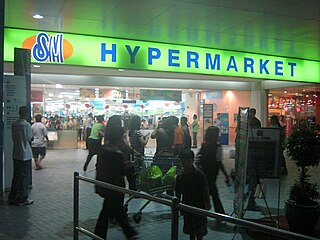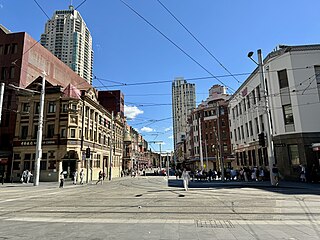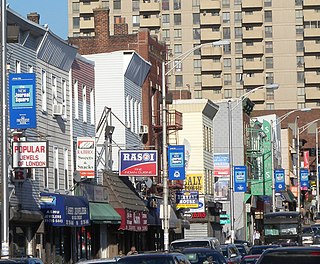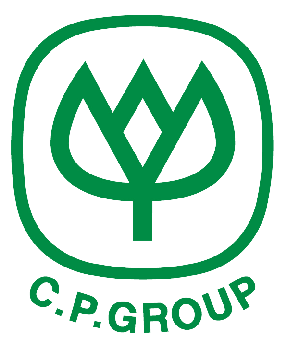7-Eleven, Inc. is a Japanese-owned convenience store chain, headquartered in Irving, Texas. The chain was founded in 1927 as the Southland Ice Company, operating an ice house storefront in Dallas. Then-owned by Southland Corporation, the number of convenience stores expanded and were named Tote'm Stores between 1928 and 1946. Southland Corporation changed the stores' name to 7-Eleven in 1946, reflecting expanded hours of operation. Southland Corporation started franchising its stores in 1961; in 1973 Ito-Yokado, a Japanese supermarket chain, signed a franchisee agreement with Southland Corporation to develop 7-Eleven convenience stores in Japan. Operating the Japanese stores under Seven-Eleven Japan, Ito-Yokado acquired a 70% stake in Southland Corporation in 1991; as majority owner, it changed Southland Corporation's name to 7-Eleven, Inc. that same year, then expanded to 100% ownership in November 2005, making 7-Eleven, Inc. a wholly owned subsidiary of Seven-Eleven Japan. Ito-Yokado reorganized its collective businesses as a holding company in 2005, Seven & I Holdings, with 7-Eleven, Inc. wholly held by Seven-Eleven Japan.

Little Saigon is a name given to ethnic enclaves of expatriate Vietnamese mainly in English-speaking countries. Alternate names include Little Vietnam and Little Hanoi, depending on the enclave's political history. To avoid political undertones due to the renaming of Saigon to Ho Chi Minh City, it is occasionally called by the neutral name Vietnamtown. Saigon is the former name of the capital of the former South Vietnam, where a large number of first-generation Vietnamese immigrants emigrating to the United States originate from, whereas Hanoi is the current capital of Vietnam.

A hypermarket or superstore is a big-box store combining a supermarket and a department store. The result is an expansive retail facility carrying a wide range of products under one roof, including full grocery lines and general merchandise. In theory, hypermarkets allow customers to satisfy all their routine shopping needs in one trip. The term hypermarket was coined in 1968 by French trade expert Jacques Pictet.

Haymarket is an inner city suburb of Sydney, New South Wales, Australia. It is located at the southern end of the Sydney central business district in the local government area of the City of Sydney. Haymarket includes much of Sydney's Chinatown, Thaitown and Railway Square localities. Haymarket is adjacent to Darling Harbour and is surrounded by the suburbs of Ultimo, Chippendale, Surry Hills and the Sydney CBD.

A Koreatown (Korean: 코리아타운), also known as a Little Korea or Little Seoul, is a Korean-dominated ethnic enclave within a city or metropolitan area outside the Korean Peninsula.

Chinatown is an urban enclave situated in the southern part of the Sydney central business district, in New South Wales, Australia. It comprises the majority of the Haymarket suburb, between Central station and Darling Harbour. It is part of the local government area of the City of Sydney, and is Australia's largest Chinatown.

Food Lion is an American regional supermarket chain headquartered in Salisbury, North Carolina, that operates over 1,000 supermarkets in 10 states:. The chain employs over 82,000 people. It was founded in 1957 as Food Town, a single grocery store in Salisbury. It later expanded to many locations across North Carolina. It was independently operated until it was acquired by the Belgium-based conglomerate Delhaize Group in 1974. In 1983, the company changed its name and branding to Food Lion to allow it to expand into regions where Food Town was already in use by unrelated stores. Following further mergers and acquisitions, Food Lion, LLC is currently owned by Ahold Delhaize. The mascot’s name has been Leo the Food Lion since January 17, 1997.

Little India is an Indian or South Asian sociocultural environment outside India or the Indian subcontinent. It especially refers to an area with a significant concentration of South Asian residents and a diverse collection of Indian businesses. Frequently, Little Indias have Hindu temples, mosques, and gurdwaras. They may also host celebrations of national and religious festivals and serve as gathering places for South Asians. As such, they are microcosms of India. Little Indias are often tourist attractions and are frequented by fans of Indian cuisine, Indian culture, Indian clothing, Indian music, and Indian cinema.

Yagoona, a suburb of the local government area City of Canterbury-Bankstown, is located 20 kilometres south-west of the Sydney central business district, in the state of New South Wales, Australia. It is a part of the South-western Sydney region. Yagoona is an Aboriginal word meaning 'now' or 'today'. It was the site of the first McDonald's restaurant to open in Australia in December 1971.

The Charoen Pokphand Group Company, Ltd. (CP) is a Thai conglomerate based in Bangkok. It is Thailand's largest private company and the largest privately held Royal Warrant holder of the Thai Royal Family. The company describes itself as having eight business lines covering 13 business groups. As of 2020, the group has investments in 21 countries.

The Haymarket Shopping Centre is a shopping centre in the city centre of Leicester, England. It was opened on 4 June 1973 as part of the Haymarket Centre and was the country's second shopping centre after the Bull Ring, Birmingham. It is located east of and adjacent to the Clock Tower.

Chicken Treat is a fast food restaurant chain that primarily operates in Western Australia. As of March 2023, Chicken Treat has over 60 outlets within Western Australia, and two in New South Wales. The company provides a range of rotisserie chicken, fried chicken, and burger meals. Chicken Treat also offers catering services for families, groups, and businesses. It is owned by Hong Kong–based private equity firm PAG Asia Capital.

Lund Food Holdings, Inc is an American supermarket operator. Headquartered in Edina, it owns the upscale supermarket chain Lunds & Byerlys. The company opened its first supermarkets in the Uptown area of Minneapolis. In 2015, it changed its name from Lunds to Lunds & Byerlys. It operates 29 stores in Minneapolis-St. Paul metro area of Minnesota.
Central Group is a Thai multinational conglomerate consisting of subsidiaries in retail, property development, brand management, hospitality, and food and beverage sectors.

David Thompson is an Australian chef, restaurateur and cookery writer, known for his skill and expertise in Thai cuisine.

The East Market District, colloquially referred to as NuLu, is an unofficial district of Louisville, Kentucky, situated along Market Street between downtown to the west, Butchertown to the north, Phoenix Hill to the south, and Irish Hill to the east. The area is home to schools, churches, large and small businesses and some of the city's oldest homes and businesses. A destination since Louisville's founding, Market Street has played host to a variety of businesses throughout the city's history that have drawn Louisvillians for generations to its addresses.

Chinatowns in Australia is a term used to describe major Chinese ethnic enclaves in Australia, especially those that claim to retain a strong Chinese cultural identity and a strong relationship with China. Chinatowns exist in most Australian states and territories, especially in the highly-populous and cosmopolitan capital cities but also in rural areas. Many large present-day Chinatowns in Australia have developed out of smaller historical Chinese settlements in Australia dating back to the 19th century. Chinese people first immigrated to Australia in large waves in the midst of the Australian gold rushes. Many of these people subsequently chose to return to China or were forcefully deported from Australia. The first known Chinese Australian was John Shying, who immigrated to Australia in 1818.

Little Cambodia or Cambodia Town is a term that refers to an ethnic enclave of people from the country of Cambodia.

Guzman y Gomez is a Mexican casual and fast food restaurant chain based in Australia. Many restaurants also serve coffee through the “Cafe Hola” brand which operates during the morning.

The Campbell's Stores is a heritage-listed former warehouse building in the inner city Sydney suburb of The Rocks, New South Wales, Australia. The Victorian Georgian building previously served as store houses and maritime bonded warehouses. It was built from 1850 to 1861. It faces Campbells Cove, an inlet in the north-west of Sydney Cove. In the 1970s, along with the general decline of commercial shipping activities in Sydney Cove, the building was converted for use as tourist-orientated restaurants and bars.



















